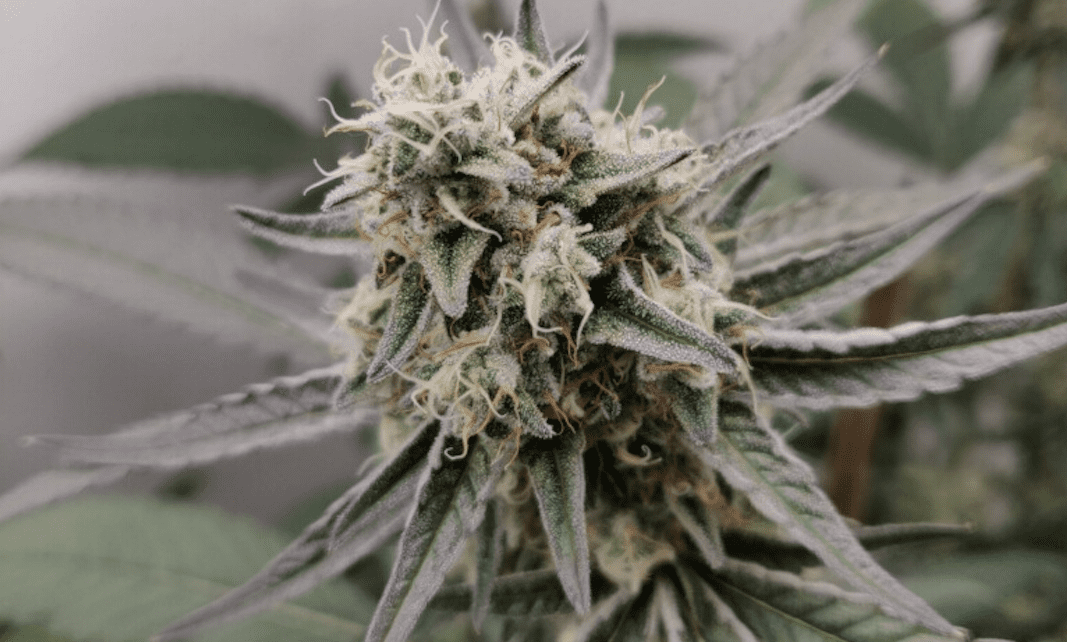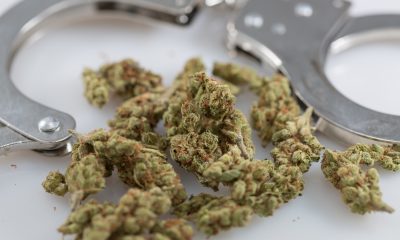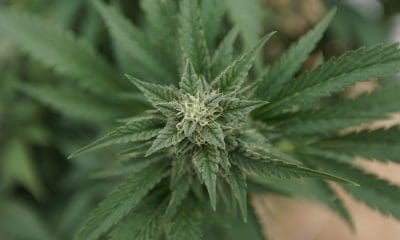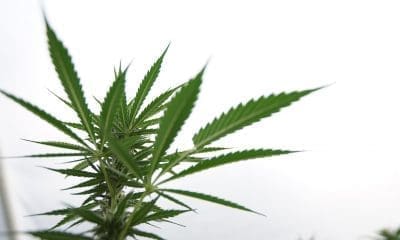Politics
D.C. Medical Marijuana Patient Registrations Surge Again In September With Self-Certification Law In Effect

Washington, D.C. medical marijuana patient registrations continue to surge since the city started allowing residents to self-certify without a doctor’s recommendation—with the program adding about 1,500 more patients in September.
At the end of last month, D.C. had 22,482 registered cannabis patients, which is nearly two times as large as the patient population around this time last year, representing a 90 percent increase compared to October 2021. The rapid increase in recent months appears directly linked to the self-certification policy that was signed into law on July 6.
That law allows people to fill out a simple form to register themselves as patients without needing a doctor’s recommendation.
In June, there were 14,468 medical marijuana patients registered in the District. That quickly rose to 15,730 in July and 21,051 in August before jumping another roughly 1,500 over the next month.
Overall, D.C.’s medical cannabis patient population grew 55 percent from June to September.
D.C. Medical Marijuana Patient Registrations October 2021-September 2022:
| October | 11,856 |
| November | 12,041 |
| December | 12,368 |
| January | 12,661 |
| February | 13,034 |
| March | 13,445 |
| April | 13,848 |
| May | 14,211 |
| June | 14,468 |
| July | 15,730 |
| August | 21,051 |
| September | 22,482 |
This trend could expand significantly since D.C. Mayor Muriel Bowser (D) signed another bill last week that allows non-residents to self-certify as well. Regulators at the Alcoholic Beverage Regulation Administration (ABRA) can now provide visitors with a temporary, 30-day registration to buy cannabis from dispensaries under the emergency legislation.
What’s more, the emergency legislation that lets adult residents 21 and older to self-certify would be permanently codified under a bill that cleared the D.C. Council Judiciary & Public Safety Committee on Friday. That measure also contains provisions eliminating existing licensing caps for cannabis businesses, which could help meet increased demand from visitors and residents.
The effect of these reforms is that the District is effectively circumventing a congressional spending bill rider that blocks D.C. from using its local tax dollars to implement a system of regulated, adult-use cannabis sales.
The recently signed bill, which unanimously cleared the D.C. Council late last month, also makes it so patients from other states—or even other countries—can self-certify to buy medical marijuana like District residents can, even if they are not registered as patients in their home jurisdiction’s program. It further increases the amount that a patient can possess from four to eight ounces.
Medical cannabis program metrics for the month of September are now available: https://t.co/iA9BtTI24k
— DCGov_ABRA (@DCGov_ABRA) October 20, 2022
The emergency act took effect with the mayor’s signature and sunsets 90 days after enactment. A complementary measure that would last for 225 days has also passed the Council is currently under review by the mayor, who has until October 25 to act on the proposal.
D.C. lawmakers additionally passed a related resolution declaring an emergency that necessitates the reform.
It says that while ABRA recently instituted a policy providing temporary, 30-day patient registrations—which has resulted in more than 5,000 registrations since August—there “remains a need to expand upon patient access to medical cannabis for qualifying non-resident patients visiting the District of Columbia who are not enrolled in another jurisdiction’s medical cannabis program.”
The resolution points out that states like Hawaii and Oklahoma “already allow visiting patients from other jurisdictions to register and obtain temporary patient registrations cards from the jurisdiction being visited to purchase medical cannabis.”
While advocates have welcomed the legislative efforts to expand cannabis access in the District, many continue to push for an end to the federal blockade that’s prevented D.C. from establishing a regulated market, despite voters approving an initiative to legalize possession and personal cultivation in 2014.
After President Joe Biden issued a proclamation earlier this month pardoning Americans who’ve committed federal marijuana possession offenses, as well as people who’ve violated the law in D.C., U.S. Rep. Eleanor Holmes Norton (D-DC) called on the president to go further by federally legalizing cannabis and letting the District establish a commercial cannabis market and grant clemency on its own.
The congresswoman said the ongoing local ban, which was maintained in Biden’s last two budget proposals, represents a “shocking violation of D.C. home rule by a Democratic administration.”
A poll released last month found that D.C. voters strongly support marijuana legalization and oppose a crackdown on the cannabis “gifting” market that’s emerged in the absence of regulated sales.
D.C. lawmakers also recently sent letters to House and Senate Appropriations Committees leadership, imploring them to remove the rider preventing local cannabis sales as part of Fiscal Year 2023 spending legislation.
—
Marijuana Moment is tracking more than 1,500 cannabis, psychedelics and drug policy bills in state legislatures and Congress this year. Patreon supporters pledging at least $25/month get access to our interactive maps, charts and hearing calendar so they don’t miss any developments.
![]()
Learn more about our marijuana bill tracker and become a supporter on Patreon to get access.
—
The House passed the relevant spending bill for FY 2023 in July, excluding the D.C. marijuana prohibition language. In the Senate, the legislation that’s currently on the table from the Democratic Appropriations Committee chairman also omits the rider.
Bowser, Norton and other elected officials in the city have routinely criticized Congress for singling out the District and depriving it of the ability to do what a growing number of states have done without federal interference.
Norton told Marijuana Moment in a phone interview in July that she’s “fairly optimistic” that the rider will not be included in the final spending package. She added that the D.C. self-certification policy is an “effective workaround” until then.
The patient self-certification provision of the measure represents a significant expansion of another piece of legislation enacted into law this year that allows people 65 and older to self-certify for medical cannabis without a doctor’s recommendation.
Meanwhile, the mayor signed a bill in July that bans most workplaces from firing or otherwise punishing employees for marijuana use.
The reform is designed to build upon on a previous measure lawmakers approved to protect local government employees against workplace discrimination due to their use of medical cannabis.
While not directly related to the policy change, a D.C. administrative court recently reversed the termination of a government employee and medical cannabis patient who was fired after being suspected of intoxication on the job and subsequently tested positive for marijuana in late 2020. It also ordered the Office of Unified Communications (OUC) to reimburse the worker for all back pay and benefits.
Photo courtesy of Mike Latimer.
















